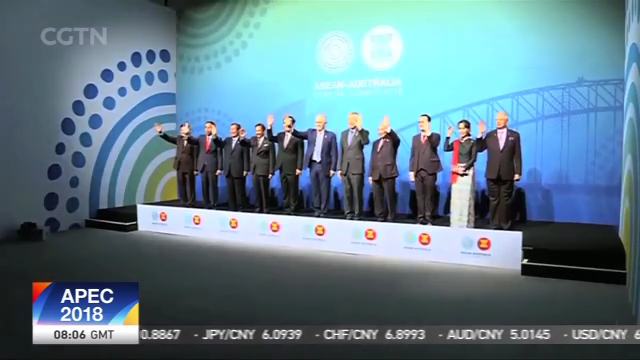
16:45, 14-Nov-2018
APEC 2018 Leaders' Week: APEC dedicates nearly 30 years to promoting trade
Updated
16:35, 17-Nov-2018
02:22

One of APEC's main priorities, when it was created nearly 3 decades ago, was to foster trade across the region. But promoting trade may prove to be one of the more difficult challenges facing the 21-member organization at the moment because of the global tariffs issue. CGTN's Greg Navarro has more.
As world leaders gather in Port Moresby this week to take part in the APEC meeting, there is one goal they are expected to address.
DAVID THOMAS, CEO THINK GLOBAL CONSULTING "There is no question that what APEC hopes to address is the importance of free trade."
It is the same goal the organisation has been trying to foster for almost 30 years across the Asia Pacific.
PROF. TIM HARCOURT, ECONOMIST UNIVERSITY OF NEW SOUTH WALES "I think there is good work being done in trade and services, there has been good work done in investment facilitation, there has been a lot of work done behind the scenes that you don't see with the big regal occasions with the national consumes."
But the 2018 meeting is presented with a different global environment and one where promoting trade has become increasingly difficult.
DAVID THOMAS, CEO THINK GLOBAL CONSULTING "The world is going in the other direction and so this agenda that they want to push, which is free trade, is always going to be under many headwinds right now."
GREG NAVARRO SYDNEY "But there is a theory that APEC and other trade organisations can actually help in the event of a trade war, and act as a kind of buffer against the impacts."
DAVID THOMAS, CEO THINK GLOBAL CONSULTING "Actually you could argue that the greatest push for free trade is coming from China and the Asia Pacific region which probably has the most to gain from open markets, particularly the US and the west being open. And so in a sense, APEC represents a pretty strong pressure group around maintaining those trade links and I'm sure we'll hear a lot more about that."
Some economists believe that APEC has focused so much on promoting trade and investment that it has lost sight of some of the other economic needs for many countries, including developing nations.
PROF. TIM HARCOURT, ECONOMIST UNIVERSITY OF NEW SOUTH WALES "It drifted into tariffs when really it was about capacity building so you don't just open up your economies you've got to build education and skills and the labour market with it too and you will have more success. I think it went probably too far down the trade liberalisation path without thinking about other things that matter in the economy."
And with the rise in prominence of other trade organisations including ASEAN and the G20, APEC also faces the challenge of remaining as relevant as it was when world leaders gathered for the first meeting 29 years ago. Greg Navarro, CGTN, Sydney.

SITEMAP
Copyright © 2018 CGTN. Beijing ICP prepared NO.16065310-3
Copyright © 2018 CGTN. Beijing ICP prepared NO.16065310-3